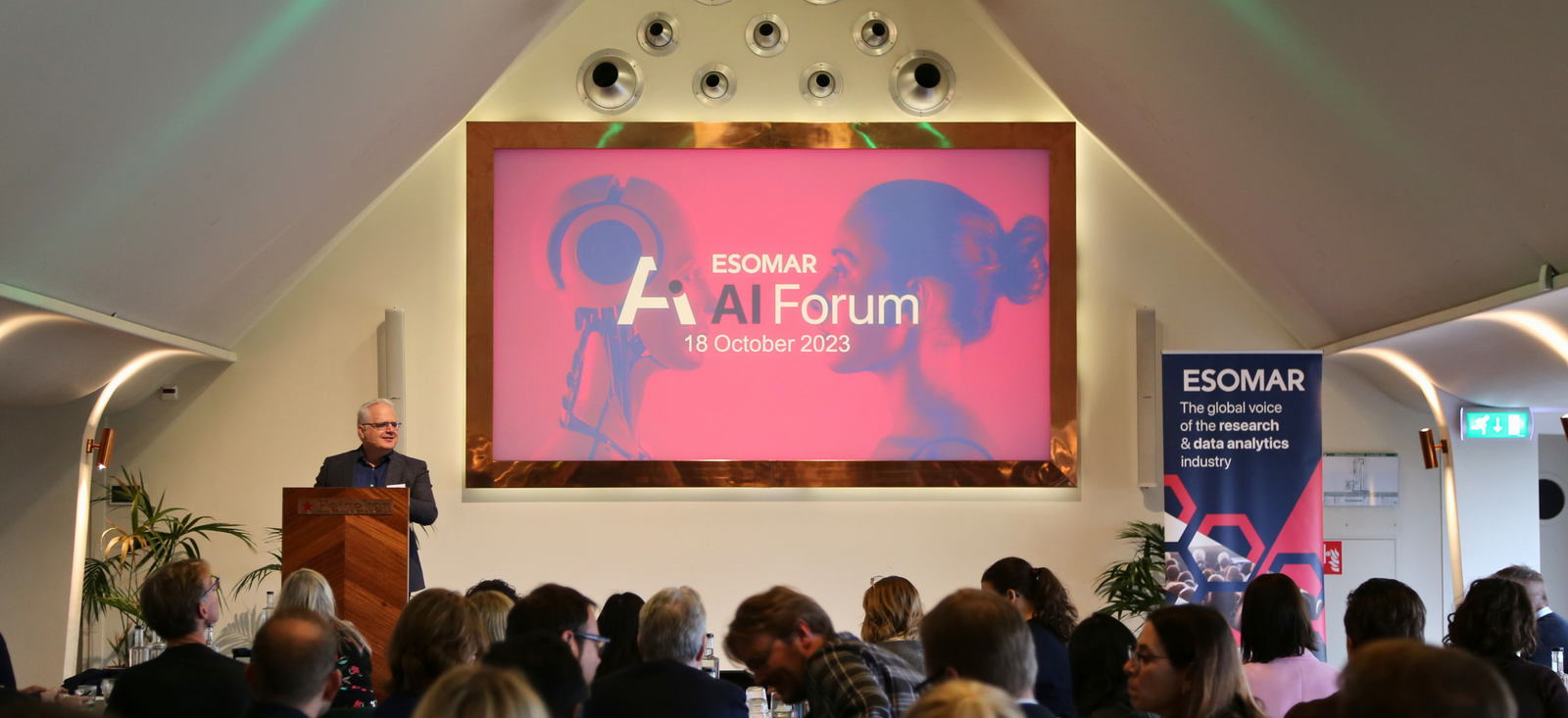ESOMAR brought together experts, practitioners and curious learners (such as myself) eager to learn and share knowledge about one of the tropical topics – Artificial Intelligence (AI) in the insights industry at the popular Heineken Experience in Amsterdam.
The program was designed to allow participants to learn from the AI practices and use cases of notable industry players in the morning and facilitate a group discussion with other participants in the afternoon on some of the significant topics that grip the world of AI.
Advanced AI; nascent regulations
Nell Watson’s Keynote speech set the tone for the day by showcasing some of the important milestones achieved by Generative AI. Her presentation underscored the dynamic nature of the field, emphasising the need for careful examination due to the existing and potential societal repercussions resulting from the inherent flaws in these algorithms.
In this context of Generative AI’s evolving presence and societal impact, Claudio Gennaro (from ESOMAR’s Government Affairs and Professional Standards department) further delved into the global landscape of AI regulations. The nascent stages of these regulations highlighted the pressing need for comprehensive frameworks to safeguard data stakeholders in an era of increased AI adoption across the industry. It is at this juncture that ESOMAR is drafting 22 Questions to help buyers of AI-based services for market research and insights, and it is open for consultation until November 24th. Readers, you are encouraged to share your feedback and be part of the voice guiding AI-based services' buyers.
Keeping the human in the loop
With the proliferation in the usage of ChatGPT, incidences of privacy breaches and fabricated data are coming to light. It is also an impending concern among the insights professionals whether a generalised and open AI such as ChatGPT would be ideal to assist them in extracting insights relevant to the industry. Against this backdrop, Michel Guidi explained how Ipsos has been developing a Gen AI sandbox – Ipsos Facto – that ensures that the researchers (read humans) are in the loop every step of the way to facilitate the handling of data with integrity while ensuring the insights are accurate and explainable.
Synthetic data is a subject that captivates insights professionals, who are both curious about its possibilities and apprehensive about potential repercussions. Annelies Verhaeghe, through her presentation, encouraged the audience to use synthetic data in a walled garden and, of course, with human oversight. She also advised us to return to school for a course on prompt engineering, driving home the importance of asking the right questions to prime the AI to provide the relevant answers. I couldn’t help but agree that this is a good skill for insights professionals to keep in their rucksacks as they navigate the AI maze.
Knights of the Roundtables
Melanie Courtright led the first roundtable session I personally attended, and we had the opportunity to discuss data quality and AI. This exercise allowed us to delve deeper into the factors that need to be considered when using AI for research purposes, and these are simplified as six R’s – Reasons for use, Risk, Respondent care, Representation, Relevance and Reliability. This would be a good tactic for insights professionals to evaluate their AI use against these six R’s and understand where they stand.
Annelies Verhaeghe led my second roundtable session, and this discussion allowed practitioners to share their opinions about the possibility of using synthetic data in their research.
A key takeaway from both discussions was that, at present, AI seems more promising in the field of evaluating the health of data than others. These discussions also reminded me of the importance of good-quality data. For example, it would still be bad logic to draw good insights if the data that supports these insights are of low quality.
Hope for the future
ESOMAR’s AI Forum reminded the participants that we are amidst some exciting technological changes and how we operate in the industry. It is essential for insights professionals to stay updated on these developments to convert the AI maze into an AI-maze-ing insights industry (Pun credit: Xabier Palacio). I am eager to witness the new developments that AI will usher in and the pivotal role ESOMAR will play in guiding the future of the insights industry.



